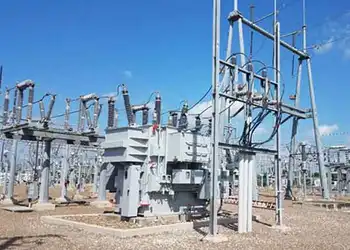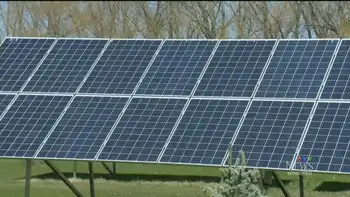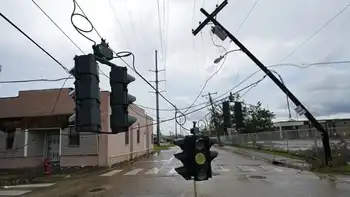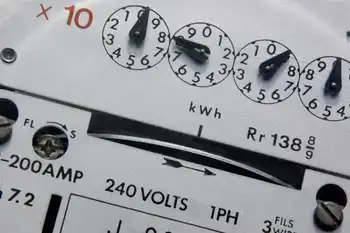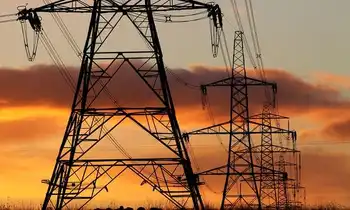Louisiana Grid Rebuild After Hurricane Laura will overhaul transmission lines and distribution networks in Lake Charles, as Entergy restores power after catastrophic outages, replacing poles, transformers, and spans to stabilize critical electric infrastructure.
Key Points
Entergy's project replacing transmission and distribution in Lake Charles to restore power after the Cat 4 storm
✅ 1,000+ transmission structures and 6,637 poles damaged
✅ Entergy targets first energized line into Lake Charles in 2 weeks
✅ Full rebuild of Calcasieu and Cameron lines will take weeks
The main power utility for southwest Louisiana will need to "rebuild" the region's grid after Hurricane Laura blasted the region with 150 mph winds last week, top officials said.
The Category 4 hurricane made landfall last Thursday just south of Lake Charles near Cameron, damaging or destroying thousands of electric poles as well as leaving "catastrophic damages" to the transmission system for southwest Louisiana, similar to impacts seen during Typhoon Mangkhut outages in Hong Kong that left many without electricity.
“This is not a restoration," Entergy Louisiana president and CEO Phillip May said in a statement. "It’s almost a complete rebuild of our transmission and distribution system that serves Calcasieu and Cameron parishes.”
According to Entergy, all nine transmission lines that deliver power into the Lake Charles area are currently out service due to storm damage to multiple structures and spans of wire.
The transmission system is a critical component in the delivery of power to customers’ homes, and failures at substations can trigger large outages, as seen in Los Angeles station fire outage reported recently, according to the company.
Of those structures impacted, many were damaged "beyond repair" and require complete replacement.
Broken electrical poles are seen in Holly Beach, La., in the aftermath of Hurricane Laura, Saturday, Aug. 29, 2020. (AP Photo/Gerald Herbert)
Entergy said the damage in southwest Louisiana includes 1,000 transmission structures, 6,637 broken poles, 2,926 transformers and 338 miles of downed distribution wire, highlighting why proactive reliability investments in Hamilton are being pursued by other utilities.
Some 8,300 workers are now in the area working to rebuild the transmission lines, but Entergy said that it will be about two to three weeks before power is available to customers in the Lake Charles area, a timeline similar to Tennessee outages after severe storms reported recently in other states.
"Restoring power will take longer to customers in inaccessible areas of the region," the company said. "While not impacting the expected restoration of service to residential customers, initial estimates are it will take weeks to rebuild all transmission lines in Calcasieu and Cameron parishes."
Entergy Louisiana expects to energize the first of its transmission lines into Lake Charles in two weeks.
“We understand going without power for this extended period will be challenging, and this is not the news customers want to hear. But we have thousands of workers dedicated to rebuilding our grid as quickly as they safely can to return some normalcy to our customers’ lives,” May said.
According to power outage tracking website poweroutage.us, over 164,000 customers remain without service in Louisiana as of Thursday morning, while a Carolinas outage update shows hundreds of thousands affected there as well.
On Wednesday, the Edison Electric Institute, the association of investor-owned electric companies in the U.S., said in a statement to FOX Business that electricity has been restored to approximately 737,000 customers, or 75% of those impacted by the storm across Louisiana, eastern Texas, Mississippi, and Arkansas, even as utilities adapt to climate change to improve resilience.
At least 29,000 workers from 29 states, the District of Columbia and Canada are working to restore power in the region, according to the Electricity Subsector Coordinating Council (ESCC), which is coordinating efforts from government and power industry.
“The transmission loss in Louisiana is significant, with more than 1,000 transmission structures damaged or destroyed by the storm," Department of Energy (DOE) Deputy Secretary Mark Menezes said in a statement. Rebuilding the transmission system is essential to the overall restoration effort and will take weeks given the massive scale and complexity of the work. We will continue to coordinate closely to ensure the full capabilities of the industry and government are marshaled to rebuild this critical infrastructure as quickly as possible.”
At least 17 deaths in Louisiana have been attributed to the storm; more than half of those killed by carbon monoxide poisoning from the unsafe operation of generators, and residents are urged to follow generator safety tips to reduce these risks. Two additional deaths were verified on Wednesday in Beauregard Parish, which health officials said were due to heat-related illness following the storm.
Related News






